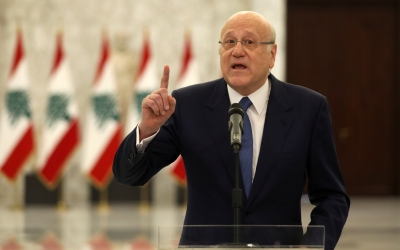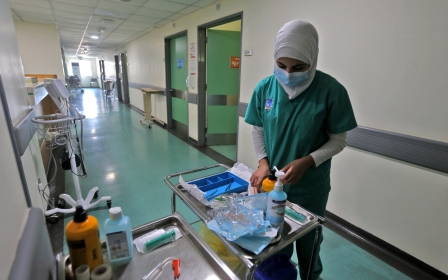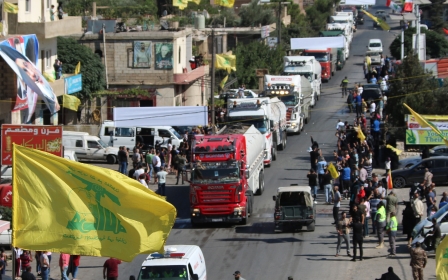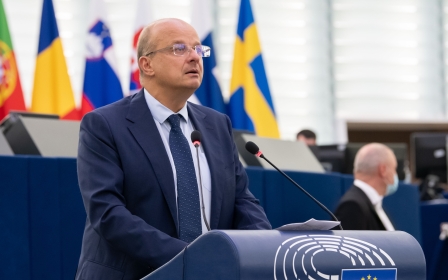Lebanon's new government wins confidence vote after marathon session
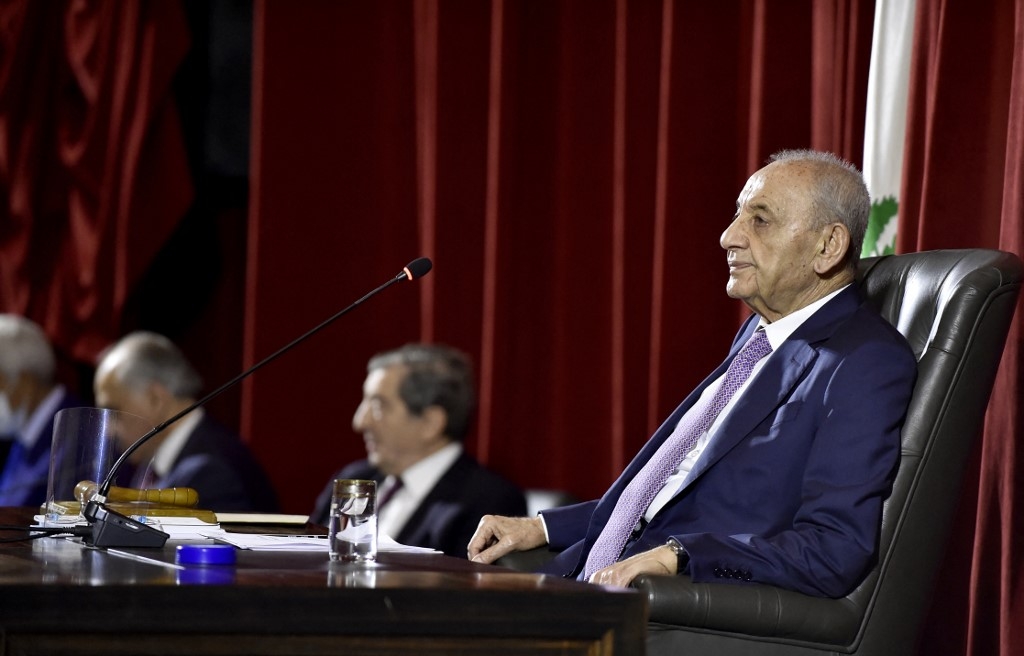
Lebanon's new government secured a vote of confidence from the country's parliament on Monday, finally putting to an end 13 months of political deadlock.
After a marathon eight-hour session to examine the government's action plan, 85 lawmakers voted for Prime Minister Najib Mikati's line-up while 15 voted against, according to a tally announced by Parliament speaker Nabih Berri.
"From the heart of the suffering of Beirut ... our cabinet was born to light a candle in this hopeless darkness," Mikati said.
A billionaire tycoon, Mikati has drawn up a policy programme aimed at reviving talks with the IMF and initiating reforms that donors want to see before they will unlock badly needed foreign assistance.
The draft programme would renew and develop a financial recovery plan drawn up by the previous government, which set out a shortfall in the financial system of some $90bn - a figure endorsed by the IMF.
New MEE newsletter: Jerusalem Dispatch
Sign up to get the latest insights and analysis on Israel-Palestine, alongside Turkey Unpacked and other MEE newsletters
"We will start with the IMF. This is not a choice - it is something we have to go through," he said in a speech, before votes were taken.
Shortly before the vote, Berri urged Mikati to keep his remarks short because of the power cuts, part of a nationwide energy crisis which has crippled normal life as hard currency reserves have run out.
Lebanon is grappling with a financial crisis branded by the World Bank as one of the world's worst since the 1850s.
The Lebanese pound has lost more than 90 percent of its value since late 2019 and left four out of five inhabitants below the poverty line.
The crisis deepened when the central bank started removing subsidies in order to shore up its dwindling foreign currency reserves, making the cost of fuel imports more expensive and leading to wide-ranging shortages, with power cuts lasting up to 22 hours a day and fuel for private generators increasingly scarce.
Earlier this month, Mikati's government was finally agreed to after a year of political paralysis following the resignation of the previous cabinet in the wake of the Beirut port explosion.
Wealthy Gulf states, which had traditionally channelled funds into Lebanon, have been reluctant to come to its rescue for years, alarmed by the influence of Iran-backed group Hezbollah.
Mikati has pledged to bring Lebanon back into the Arab fold but he faces a delicate balancing act, with Hezbollah successfully bringing in a first shipment of Iranian fuel oil to alleviate the power shortages.
Iran said on Sunday it is willing to sell oil directly to the Lebanese government in order to help with the country's ongoing fuel and economy crisis, after its first delivery of fuel arranged by Hezbollah arrived last week.
Mikati told CNN on Friday that the shipment "was not approved by the Lebanese government" and that he was "saddened" by "the violation of Lebanese sovereignty".
Middle East Eye delivers independent and unrivalled coverage and analysis of the Middle East, North Africa and beyond. To learn more about republishing this content and the associated fees, please fill out this form. More about MEE can be found here.


